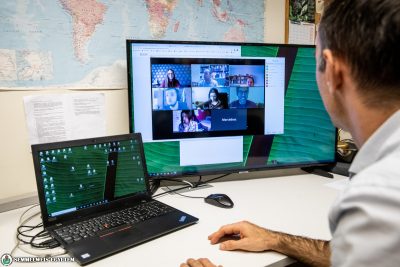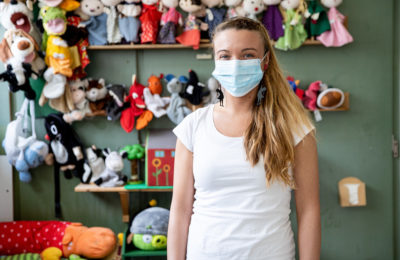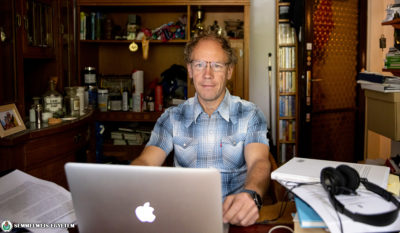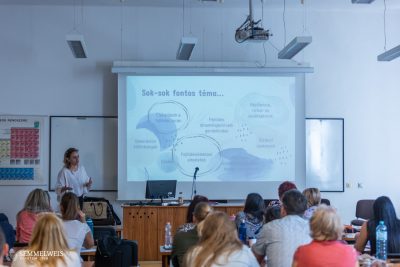 Distance education started at all six faculties on Monday, in line with plans and the academic curriculum, in the Hungarian, English and the German-language programs, said Dr. Attila Szabó, vice-rector for clinical affairs and the chairman of the university’s Epidemiology Committee. “The Zoom system procured and newly implemented at the initiative of rector Dr. Béla Merkely performed well, there were no major problems, and the Moodle system that was already being used was able to handle the increased capacity, so nothing got in the way of education,” he added.
Distance education started at all six faculties on Monday, in line with plans and the academic curriculum, in the Hungarian, English and the German-language programs, said Dr. Attila Szabó, vice-rector for clinical affairs and the chairman of the university’s Epidemiology Committee. “The Zoom system procured and newly implemented at the initiative of rector Dr. Béla Merkely performed well, there were no major problems, and the Moodle system that was already being used was able to handle the increased capacity, so nothing got in the way of education,” he added.
Based on the experiences of the first day, lecturers were well-prepared for carrying out remote instruction, they knew how to handle the system, and students also signed in for the lectures in great numbers, said Dr. Szabó, adding that there were even more students present at the online classes than are usually in the classrooms. Initial feedback from students was mostly positive, they said the distance education system is at least as good as the previous, traditional system. “Of course, we obviously cannot replace practical classes, but in most other cases this form of education works perfectly well,” said Dr. Szabó about the experiences so far.
The first day of remote instruction included classroom lectures, seminars, as well as exams, and even the latter were conducted without any problems.
At the request of Dr. Attila Szabó, chairman of the Epidemiology Committee, a detailed summary of the experiences of the first week will be prepared by Dr. Péter Hermann, vice-rector for education, and Dr. Levente Kiss, director of the Center of Educational Development, Methodology and Organization (OMSZK) by Friday morning. “If any further fine-tuning of the system is necessary based on this review, we will naturally take all the appropriate steps,” noted Dr. Szabó.
Pálma Dobozi
Translation: Tamás Deme
Photo: Attila Kovács – Semmelweis University
Video: László Sturbán, Attila Kovács


